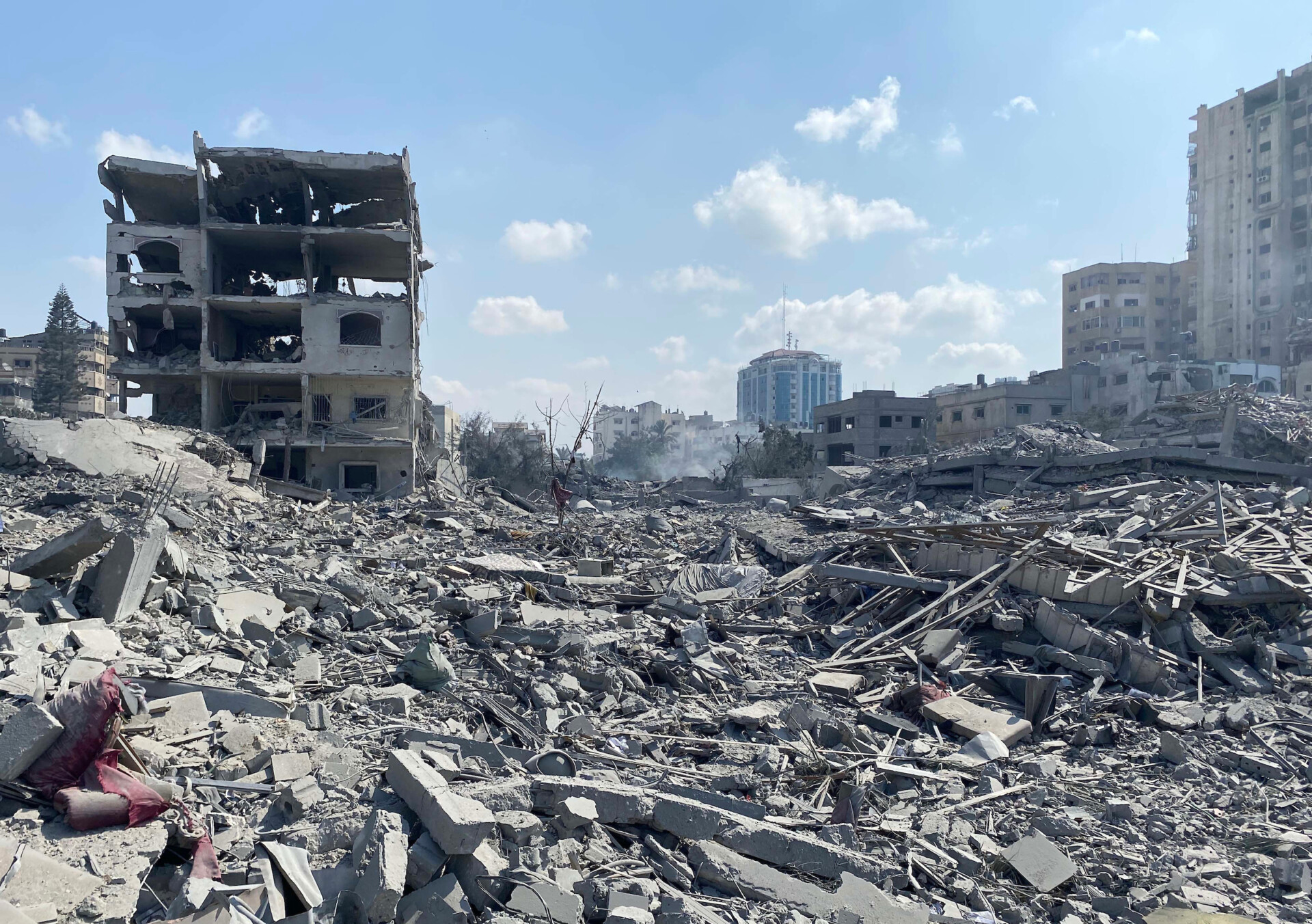
Violence Has Already Shaped Mexico’s June 2 Election
Michael W. Chamberlin is a non-resident senior fellow at The Center for International Policy.
Mexico is gearing up for its general elections on June 2, a crucial event where over 20,000 public officials will be elected, spanning from the Senate and the House of Representatives to numerous governorships and municipalities, and even the Presidency of the Republic. Notably, this election marks the first time both leading contenders for the presidency are women. Regardless of which candidate wins, the results of the election have already been shaped by political violence. It will take courage as well as international support for non-violent means to reduce the outsized role of armed agents, be they criminal or military, over the country’s democratic future.
The electoral landscape unfolds against a grim backdrop of violence across many regions of the country. A report by the think tank Data Civica titled “Vote Between Bullets” highlights a staggering 1,833 incidents of threats, murders, armed attacks, disappearances, and kidnappings related to electoral activities between 2018 and April 29, 2024. As of May 10th, there is a toll of 63 persons linked to the electoral process killed, 32 of them candidates, according to Laboratorio Electoral, another Mexican think tank. This violence, orchestrated by organized crime groups, has sadly become a tool to sway election outcomes.
The statistics paint a harrowing picture. The year 2023 witnessed the highest toll of political-criminal violence, with 575 individuals and facilities targeted, closely followed by 2022 with 486 incidents. Since January 2024 alone, the toll includes 22 pre-candidates and candidates murdered, 14 facing threats, 4 suffering armed attacks, 8 enduring assaults, and 10 subjected to kidnappings. Shockingly, over 2,000 candidates—about 10% of the total—have withdrawn from their candidacies due to threats and violence, particularly at the local level.
The infiltration of organized crime into the political fabric of the nation not only jeopardizes freedom of choice at the ballot box but also raises profound concerns about governance, the agendas that will prevail, and the vulnerability of citizens in the face of entrenched corruption and impunity.
It’s no secret that organized crime has burgeoned in Mexico, extending its grasp far beyond drug trafficking to control a myriad of legal and illicit enterprises—from human trafficking to monopolizing markets for staples like chicken, avocado, and lemons—often through extortion. Over the past 15 years, the “war on drugs”, initially backed by the Merida Initiative, has inadvertently handed over vast swathes of territory to criminal groups, with an estimated 30% to 35% of Mexico’s territory under their control by 2021.
Simultaneously, the country has witnessed a surge in militarization, initially aimed at combating drug cartels but gradually expanding to encompass diverse spheres including public security, environmental protection, social policies, health, customs, and infrastructure development.
A damning report titled “The National Inventory of the Militarized” reveals that between 2006 and 2023, civil functions or budgets were transferred to the armed forces on at least 291 occasions, with the Legislative Branch presenting 87 initiatives contributing to militarization, 77% of which surfaced in the last two legislative sessions dominated by the ruling Morena party.
This relentless militarization, stretching across three different administrations, underscores a concerning trend where the influence of the armed forces and organized crime transcends political boundaries, undermining the civil authority of the Republic.
So, what hangs in the balance come election time?
In the immediate future, there’s a looming threat of escalated violence potentially jeopardizing elections across nearly 30% of the country’s territory—a concern highlighted by the opposition coalition. In the long run, there’s a risk of eroding Mexico’s civil and democratic governance. Despite not being direct contenders in the elections, both the armed forces and organized crime wield considerable influence over the outcomes.
The failed anti-drug policies have inadvertently bolstered the political and economic clout of both these entities, with thousands of lives lost or wasted. Official figures from 2006 to 2022 paint a grim picture: 449,329 intentional homicides and 316,816 missing persons, of which 116,300 remain unaccounted for.
The enabling factors behind this surge in lethal power, whether on the military or criminal fronts, stem from the rampant corruption within the political elite, the prevailing culture of impunity shielding wrongdoers, and a dire lack of transparency and accountability across military ranks, political parties, and elected representatives, blurring the borders between state and non-state actors, criminal and governing bodies. Far from firing missiles at Mexico, the battle against organized crime must be waged using the tools of democracy and justice; guns have only fueled further violence.
If the United States aims to champion democracy and freedoms globally, it must actively support the strengthening of civil institutions and checks and balances within Mexico. Failure to do so risks empowering an already formidable transnational monster, fed through corruption by security assistance programs.

